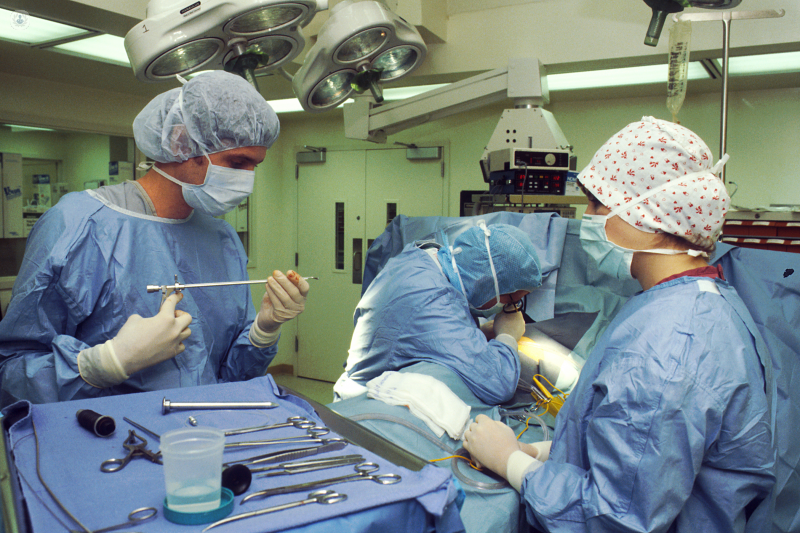Surgical oncology
Mr Alastair MacKenzie Ross - Plastic surgery
Created on: 01-16-2018
Updated on: 04-27-2023
Edited by: Conor Dunworth
What is surgical oncology?
Surgical oncology is a branch of surgery focussing on the surgical management of tumours, in particular malignant (cancerous) tumours.
While the term is frequently used, surgical oncology is not recognised as a specialty by the GMC (General Medical Council); rather, it is a term encompassing a number of disciplines across several specialties, for example, an otolaryngologist with a sub-specialty interest in the surgical treatment of head and neck cancer could be said to be a specialist in surgical oncology, as could a gynaecologic oncologist.
Because of the varying natures and locations of different cancers, it is virtually impossible for one surgeon to specialise in surgery for every kind of tumour; however, surgeons of any specialty who are thoroughly involved in performing operations to treat cancer/tumours may consider themselves surgical oncologists.

What conditions are treated under surgical oncology?
Cells in just about every part of the body have the potential to mutate and become cancerous or form tumours. For this reason, surgical oncology covers a myriad of conditions. It is common for the surgeon to specialise in treating illnesses of the specific part of the body, with surgical oncology as a sub-specialty, as oppose to specialising in all types of cancer.
Conditions that fall under the category of surgical oncology include:
- Breast cancer
- Colorectal cancer
- Head and neck cancer
- Melanoma
- Pancreatic cancer/tumours
- Sarcoma
- Other types of skin cancer
- Thyroid tumours
What does surgical oncology involve?
Surgical oncology essentially involves cutting the tumour or cancer out of the patient in a very delicate operation. Once the only option for curing a patient of cancer, the last century has seen the arrival of two sister branches of cancer care: medical oncology and radiation oncology.
With many cancers, medication and radiation is not enough, and they are used in conjunction with surgery. Because of the advances in modern cancer care and cancer research, surgical oncology has also evolved, with the oncological surgeon now typically leading multi-disciplinary teams, collaborating with radiation oncologists, medical oncologists, radiologists, and others to counter the cancer in the most effective way possible. They must have a complete understanding of the biology and history of the disease.
Surgical oncology as a specialty?
While it is not currently recognised as a specialty in the UK (or in many other countries), there is some debate as to whether it should be. While some argue that no surgeon can truly specialise in every type of cancer, other propose that due to the expertise involved, and the importance of understanding the multi-disciplinary approach to treating cancer, there should be a specialist ‘surgical oncology’ accreditation. The European Society of Surgical Oncology is one such proponent of the latter, arguing that having such accreditation standardised would raise cancer care standards across Europe.
Currently, there are a number of fellowships available for surgeons looking to get specialist training in surgical oncology.
